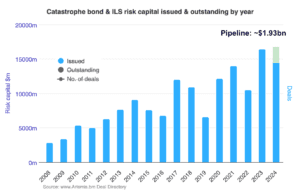401(k) Plans Are Coming for Your Rollovers

Richter says employers and employees both appreciate this dynamic, and many fiduciaries feel the Secure Act’s annuity selection safe harbor has opened an important door. The law, Richter explains, negated the need for employers to conduct ongoing review of an insurer’s capital requirements, liquidity and solvency. Instead, the employer is able to rely on written representations from the insurer, which must confirm that the insurer has complied with certain regulatory, financial reporting and auditing requirements.
Why It Matters for Wealth Advisors and Insurance Reps
Richter says many wealth advisors and retail insurance professionals hear this story about the expanding demand and interest in in-plan retirement income and assume that it won’t impact their operations. She says she understands that point of view, given the traditional division that has existed between the wealth and institutional advisory and insurance arenas, but times are changing.
A big reason why, in addition to the Secure Act safe harbor, is the simple fact that Americans have more money than ever saved in DC plans. Many in the baby boomer generation are carrying six-figure or even seven-figure 401(k) balances into retirement, and they are going to be seeking products and advisory solutions to help them spend their money safely and efficiently.
Simply put, if retirement plan recordkeepers create a compelling value proposition for investors to stay on their platforms, Richter warns, this could have a substantial impact on the pace and scale of future rollovers.
Richter predicts leading retirement plan recordkeepers can be expected to follow in the direction of Fidelity, which will roll out a new in-plan annuitization platform in 2023 called Fidelity Income Direct. If a sizable portion of Fidelity’s nearly $3 trillion in assets ends up staying in-plan, this will clearly have an effect on the wealth management industry.
In the end, Richter says, the wealth management and insurance brokerage communities are destined to lose clients and assets if they do not address what she sees as a widespread lack of expertise in retirement income planning. She believes traditional wealth advisors, if they want to protect their rollover businesses in the coming environment, are going to have to become much more capable as genuine income planners.
For insurance reps, she says, it makes a lot of sense to consider either founding their own RIA or joining an existing one. Otherwise, it is hard to see how they could be compensated for income planning services without running afoul of prohibited transaction rules under ERISA.





